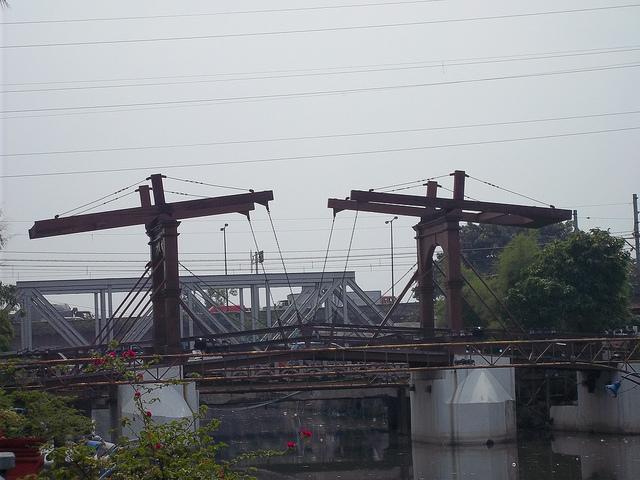
Huong Le Thu’s recent study on Southeast Asian perceptions of the Quadrilateral Security Dialogue (the informal grouping of the US, Japan, Australia and India, commonly known as the Quad) found that Indonesians were among the most ambivalent towards it.
In response to the question, ‘Do you support the Quad?’, more than 50% of Indonesians surveyed chose, ‘Not now, but maybe in the future’. If we assume that the survey result reflects Indonesia’s approach to regional dynamics, was the proportion of undecided respondents high because they weren’t able to make up their minds, perhaps due to lack of information? Or was it because they felt that indecision was the more favourable stance?
When Mohammad Hatta coined Indonesia’s bebas dan aktif (‘free and active’) foreign policy doctrine in 1948, it was generally hailed as the most appropriate response for a newly independent state to the superpower rivalry of the Cold War. Whereas bebas (often also translated as ‘independent’) meant staying outside of any binding military bloc, aktif meant vigorously battling colonialism and promoting world peace.
Adhering to these principles, Indonesia navigated the regional dynamics shaped by the Cold War and sought to keep the Southeast Asian region neutral in the bipolar rivalry by choosing not to ally with any blocs. That approach is illustrated by President Sukarno’s decision to found the non-aligned movement in 1955 and by President Suharto’s determination to keep ASEAN at a distance from great-power contestation after its establishment in 1967.
But the free-and-open policy wasn’t just fitting as a response to global dynamics; it was also the right choice for Indonesia, which lacked capacity in most of the sectors that would enable a stronger foreign policy, such as economic development, military capability and a stable political system. From that perspective, it was the cheapest and safest option.
Indonesia has continued to adhere to that doctrine. Even with no more blocs to choose from in the post–Cold War era, it still feels the need to declare itself free. And even though it has reached middle-income status and is acknowledged as one of the world’s highly developed countries through its membership of the G20, it still chooses the cheapest and safest option of not making affirmative decisions in many world affairs. Its approaches and policies on issues like the Rohingya crisis, China’s militarisation of the South China Sea, and the internment of Uyghurs are some examples that come to mind. On some of these matters, ‘free and active’ seems to be more of an excuse for inaction than a principle.
As Le Thu’s survey showed, the Quad faces some perception problems, including a common view that it antagonises China and challenges ASEAN. A total of 54% of all respondents saw the Quad as an ‘anti-China bulwark’. Having participated in various discussions on Indo-Pacific and regional security involving Indonesia’s policy and expert communities, we conclude that this is the common perception in Indonesia as well.
However, only 22% of Indonesian respondents gave a clear ‘No’ answer when asked whether they supported the Quad. The majority were undecided. Playing the free-and-active card? Perhaps. Supporting the Quad would seem like leaning towards an alliance with the US, while bluntly rejecting it risks being interpreted as lending a supporting hand to China.
We acknowledge that it’s not fair, or academically sound, to make this study the sole compass for our analysis of Indonesian foreign policy. But let’s stick to this argument as we present another factor in Indonesia’s often fuzzy approach to regional security, and ambivalent foreign policies in general.
We mentioned that domestic conditions were relevant to the free-and-active foreign policy, and they still are. The current administration has often been accused of assigning a low priority to foreign policy and therefore lacking a clear strategy for responding to regional dynamics. Discussions on the Indo-Pacific concept and the Quad come at a time when the nation is preparing itself for possibly the biggest national election in its history in 2019. And there are other more pressing items on the agenda, such as natural disasters and terrorism.
The Widodo government apparently avoids expending too much effort on foreign policy issues that aren’t popular among its people, and the Quad is no exception. At the same time, the government is extra careful not to put too much attention on Indonesia’s external relations so as not to provoke criticism from the opposition.
Taking these factors into account, an informal security framework such as the Quad doesn’t have strong appeal for Indonesia. Indonesia is preparing its own concept of the Indo-Pacific, which was introduced at the East Asia Summit in August (although so far it has had a lacklustre response, as seen in the mere mentions in the chairman’s statements at the most recent East Asia Summit and ASEAN summit).
The Indo-Pacific concept that Indonesia proposes is based on the following two principles: ‘Not to create a new mechanism or replace an existing one, but to enhance cooperation using the existing mechanism’, and ‘to keep maintaining [ASEAN’s] central role and mak[e] the Indo-Pacific region as an open, transparent, inclusive and respectful to international law and cooperative area by using the EAS mechanism as the main platform’.
From that description, we can deduce that the Quad isn’t part of Indonesia’s view of the Indo-Pacific. A straightforward rejection is unlikely to be included in any document explaining the concept, but the Indonesian government is going to shy away from engaging in further discussion of the Quad.